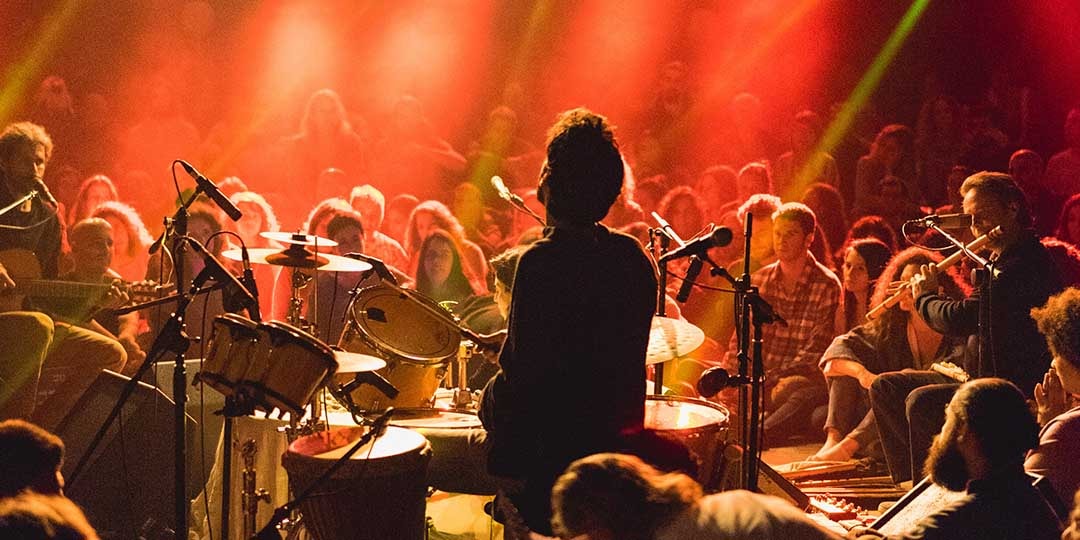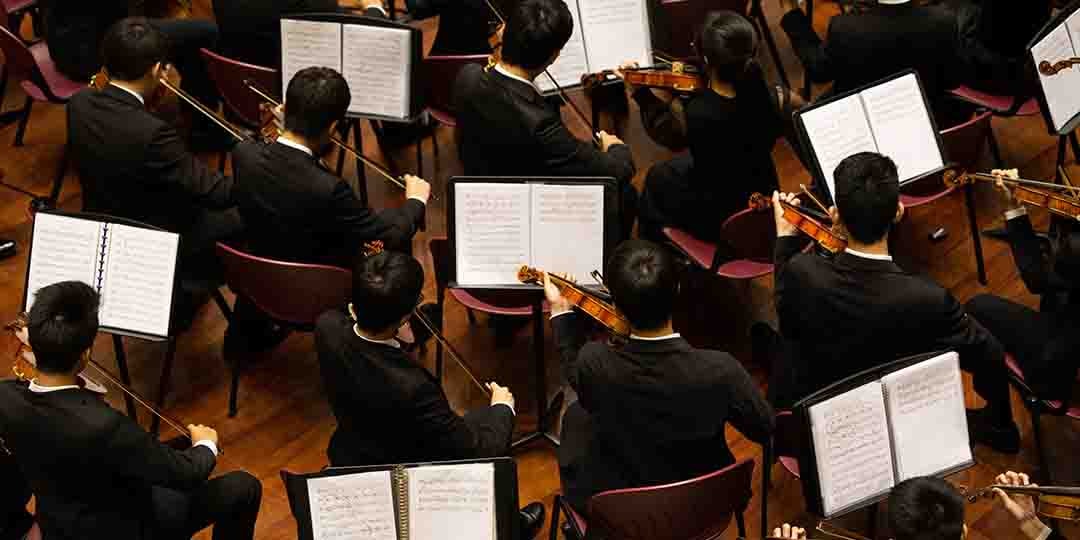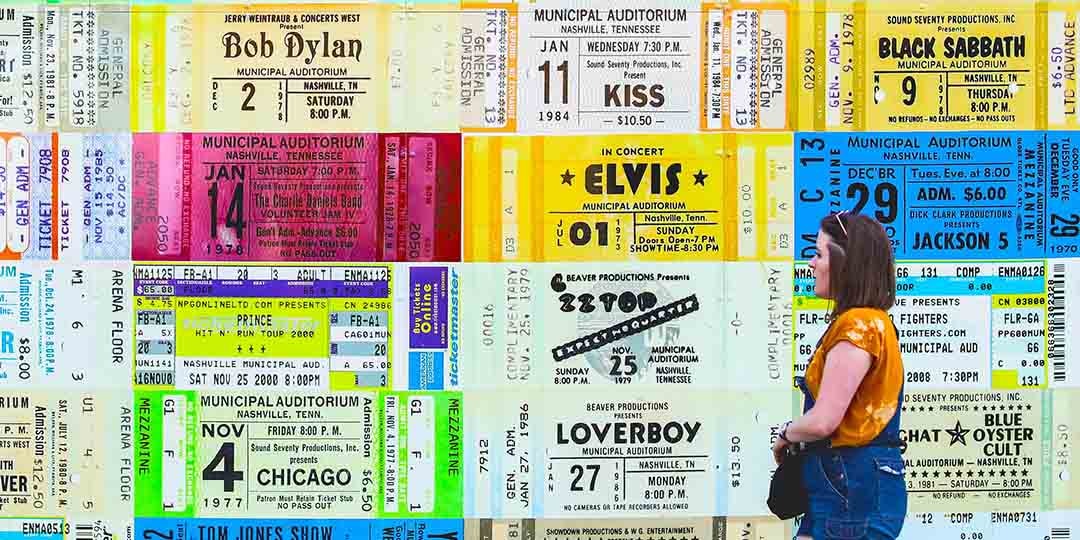In many ways, ticketing is a barometer for the larger world around it. Factors like technological influxes, privacy concerns, and personalized experiences are shaping the way individuals interact with businesses. But in what direction is the ticketing industry heading? To investigate the present and future of live entertainment, we talked with three ticketing veterans in the Queue-it network.
Ian English has decades of experience working within ticketing in Australia, the Asia-Pacific region (APAC), and Europe, and is currently working with Queue-it to support its presence in the APAC market. Kristin Darrow is Senior Vice President at Tessitura Network, a unified enterprise system that enables connections with various stakeholders in arts management. Our final contributor is Edward Roberts, Director of Product Marketing at Distil Networks, now a part of Imperva Bot Management. The company was founded in 2011 to defend various industries, including ticketing and live entertainment, from the rising threat posed by malicious bots and fraudulent activity.
From their perspectives, we gained insights into the ticketing industry: what works, what are lessons learned, and what are the prospects?
What's Past is Prologue
In order to understand the direction the industry is headed, it’s vital to look at where ticketing has been recently and what trends stood out in the last several years.
1. What was your biggest lesson-learned about the industry during the last few years?
Communication, communication, communication
“With blockbuster, high-volume events like Hamilton, one thing that proved true was how important it was to communicate transparently during the onsales. It remains a game changer that transforms the experience for the venue and the customer. When we work with one of our license holders, we script out with them a communications plan for the onsale…to ensure a good communications presence during those onsales. It just transforms it. Even if the technology is working perfectly, the customer can have the perception that it’s not, if there’s bad communication. That keeps coming up every onsale we have, and it’s turned into a key part of our preparation for them.” – Kristin Darrow
“Never assume that bringing to market is what the market wants…without actually talking and understanding what the customer wants…I’ve seen that in the online customer journeys that have so many prompts that cause customer resistance. The drop-out rates are high. When it comes to even a simple thing like registering a customer, don’t force the customer to register before they even start looking at tickets. Wait until they’re committed, then you can get their details...Customers want to be able to look, feel and taste things before they commit. They don’t feel you need to know who I am when I am doing that.” – Ian English
"Houston, we have a (bot) problem"
“39.9% of ticketing traffic is bad bots. There are many industry reports that outline all of the ways bots abuse ticketing vendors. The industry has one of the most advanced and sophisticated bot problems.” – Edward Roberts

2. The last few years were notable for some performers taking ticketing totally offline in an attempt to fight bots. What can the online ticketing industry do to maintain the trust of artists moving forward?
We Need to Talk A-bot Transparency
“The economic opportunity for scalping limited inventory items like tickets is ever present. With each high demand event, a secondary market is always possible. Scalping occurred before technology was involved and will continue no matter which technology or offline approach is in place. Artists will always seek a fair fan experience so education and transparency about the steps taken by ticketing vendors to create a fair market will be required to maintain trust.” – Edward Roberts
“It’s a tech challenge because the more you create a barrier for bots, the more bot creators fight that. The biggest thing is to communicate trust and security. Taking everything offline from an entertainer’s perspective is a counter-intuitive process. While they’re trying to protect the ticket from the bots and the scalpers, they’re also limiting their punters to buy the ticket.” – Ian English
Get by with Help from Friends
“The partnership with Queue-it is so helpful and key. It’s the 1-2 punch of bot protection, plus a really great queuing system. That combination is vital. We have thousands of success onsales every single year. That’s a huge part of maintaining trust with artists.“ – Kristin Darrow
The State of Ticketing
Now that we’ve reflected on the ticketing industry over the last several years, we wanted to explore the future of entertainment ticketing. What do the experts see developing?
3. What aspects of online ticketing are most ripe for technological disruption?
The Rise of Mobile Technology
“Protecting the integrity of the ticket: tracking the lineage of the ticketholder as it’s transferred around, limiting by geographic area, incrementing the ticketing ID, and other markers. I think for centuries the concept of the ticket has been flawed in many ways. It’s this paper entity that can be spoofed and subject to fraud. The interaction of mobile and technology hardening is really exciting, and I think we’re starting to see some of that come through now.” – Kristin Darrow
“With smartphones only a little more than a decade old, the mobile application ecosystem is very much in its infancy. As smartphones develop, the mobile ticketing experience will most likely evolve significantly as new technology emerges.” – Edward Roberts
“What is Old is New Again”
“What is old is new again. Paperless tickets, for example, have been around 25 years…The disruptors are not necessarily any different, it’s about the delivery or the interpretation…It’s about recognizing what the customer wants, and the disruptor comes with that. I don’t necessarily see something that is going to skew the industry left field…I can see the ticketing flow being more attuned to the customer by recognizing who the customer is. I think that will be an interesting development.” – Ian English
4. More vendors are going mobile, how are these changes affecting the live entertainment industry as a whole? What are the opportunities and challenges behind this shift?
A Mobile Life
“The mobile experience will become more important than the web experience. With people using their mobile device to manage every aspect of their lives, ensuring a secure and user-friendly experience will become paramount for all businesses—including ticketing.” – Edward Roberts
“The changes in the industry reflect the way we are living…The impulse buy is very high and much higher in the digital space…Having everybody with the ability to buy at the tips of the fingers puts a demand on ticketing that doesn’t correlate to what used to happen. In the promoter’s space, the ease of access and the ability to sell out faster means “If we sell 4 shows, we might be able to fit a 5th in.” That’s an advantage in the market to be prepared for that. It opens up more opportunity than anything else. Particularly, opportunity in cross-selling…If you’ve got somebody in a transaction, there’s an opportunity to up-sell, and it’s very effective…The convenience factor becomes part of the sell-up opportunity.” – Ian English
Enhancing Onsite Experiences
“I think venues, performing arts centers, and museums think about mobile in terms of improving the experience of onsite. It’s the convenience aspect for the consumers. And the experience, itself. Teaching people about what they’re looking at or listening to. I think all this technology is converging in my futuristic thinking.” – Kristin Darrow

Customer Experience: What’s in a Name?
The general consensus is customer experience is crucial to live entertainment, but what does that entail?
5. What does a fair ticket buying experience look like?
A Fair Opportunity
“For a fan, a fair experience is getting the same chance as any other fan to purchase available tickets at face value. For an artist, it is getting tickets into the hands of enthusiastic fans into their shows. For a ticketing company, it’s providing access to real humans to purchase the available tickets and eliminating any automation from abusing the system and ruining the ticketing buying experience for real fans.” – Edward Roberts
“Simply said, it’s the customer knowing they have a chance to buy tickets, that there’s an awareness that bots aren’t going to scoop all the inventory up in front of them, that they have a legitimate place in line, they know what that place in line is, and they can trust the technology. It makes sense to them as they’re going through it. It’s a really simple thing at the end of the day…They get in line (if there’s a line) and they get their tickets, and that’s that.” – Kristin Darrow
A Smooth Operation
“The best ticketing experience is one that you never hear about. They want to get through the process quickly, easily. Minimal clicks, minimal lags, and no interruptions. Because at the end of the day, they just want to get their experience.” – Ian English
6. What do you see as game changers for improving customer experience in ticketing?
A Human Touch
“A mobile-first space. That’s the expression, but not necessarily reality. To try and take a transaction that typically was an interaction with a person and replicate that process on a mobile space. The reality is you can’t replicate the interaction with a person. However, the desire from the purchaser is still to have interaction. So informational flow, content that actually informs as they’re going through the customer journey, must resemble them talking to somebody…From a ticketing perspective, that same view of information from a screen has to be thought of as part of the process…Because the customer still wants to know where they’re sitting, what’s the view, what’s the restrictions, what are the things that are necessary? You really got to look how can you built a relationship with the customer from a mobile-first standpoint. And the digital space allows a lot of identification interaction and responsive systems to knowing the customer by, at some point, being able to be proactive about that is very important. And the systems I’ve been involved with or ones I’ve consulted with or interacted with – the ones that do look at it from that standpoint – are far more successful in the workflow.” – Ian English
A Collaborative Effort
“The willingness for the ticketing industry to seek new and innovative approaches to improve the customer experience is a key driver. We see new thinking about how to eliminate abuse and reduce fan frustration. Artists, venues, ticketing platforms and even politicians, are all interested in using different approaches, from new technologies to legislation, to get tickets into real fans hands.” – Edward Roberts

A Golden Era for Data
“For me, it’s effective and responsible use of data. Both customer data and data gathered from the venue about the experience. There’s huge potential there. Data has always been around. We’ve been swimming it in for decades now. With the advancements of digital and the web, it’s exponentially increasing. As the volume of data has increased, and all the accompanying regulation and privacy focus that comes along with that, I think the focus of data is changing to center on relevance, weeding out the relevant bits that are making the customer experience better and more connected with the organization, the venue, or the concert experience…This is really a golden era in 1st party data, both for privacy regulations but also because it’s the most relevant data for the venue…The goal of Tessitura is to be the data hub in pulling in all kinds of data, 1st party and data from outside sources where it’s relevant, using business intelligence in our ability to make those correlations, to make it easier on the marketing and the fundraisers at the organizations to do their jobs better. That’s really a huge focus for what we’re working on.” – Kristin Darrow
